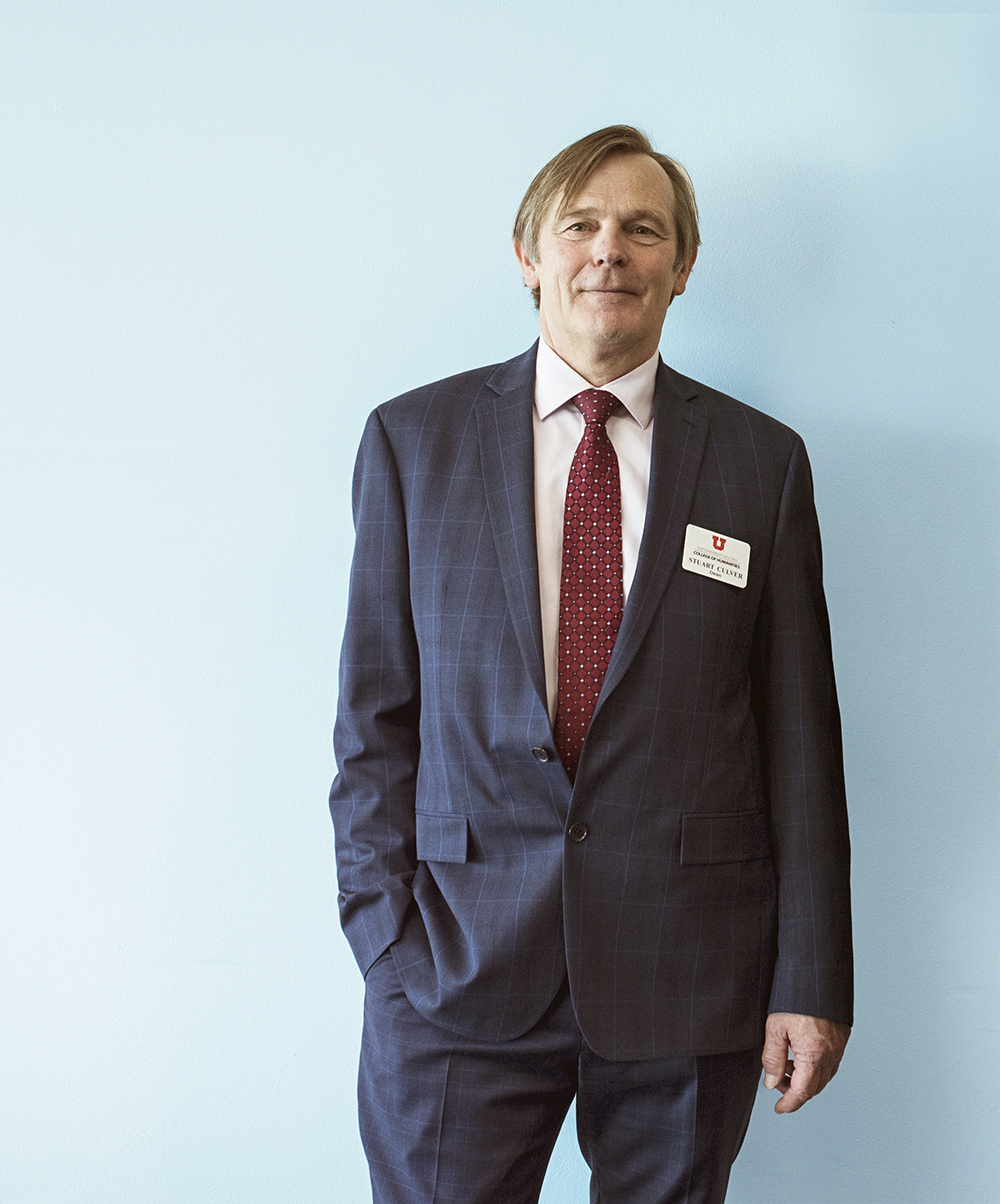Message from the Dean
You are about to read the newly reconceived and redesigned annual magazine of the University of Utah’s College of Humanities. Returning readers will note that our magazine has been given a new name, Perspectives, a title that we hope will resonate in two ways. First, because it underscores the intellectual mission shared by the several disciplines gathered in our college, which is to explore and engage the ways in which humans, past and present, have debated and narrated their culture’s values, beliefs and aspirations and to reflect on how these modes of expression and communication can be improved for future generations. And second, because we think that the best way to tell the story of the College of Humanities is to offer a series of glimpses at the different projects we are sponsoring and the wide variety of people who are engaged with our ongoing work in teaching, research and outreach.
 This is a moment of challenge and opportunity for the College: we are educating a
new generation of students brought up in a world of smart phones, tweets and an aggressive
promotion of STEM education. While we are still committed to introducing those students
to the great works and ideas of the past, we are also exploring innovative pedagogies
and new avenues of research that directly engage the changing nature of human communication
and interaction. In these pages you will learn about a History professor producing
a digital archive to bring a new appreciation to 19th Century Mormon history, Communication professors and their students who are finding
ways to keep professional journalism viable in a world of social media, and a new
major in the Philosophy of Science that will encourage students to engage directly
with ethical and epistemological questions raised by scientific research and technological
developments.
This is a moment of challenge and opportunity for the College: we are educating a
new generation of students brought up in a world of smart phones, tweets and an aggressive
promotion of STEM education. While we are still committed to introducing those students
to the great works and ideas of the past, we are also exploring innovative pedagogies
and new avenues of research that directly engage the changing nature of human communication
and interaction. In these pages you will learn about a History professor producing
a digital archive to bring a new appreciation to 19th Century Mormon history, Communication professors and their students who are finding
ways to keep professional journalism viable in a world of social media, and a new
major in the Philosophy of Science that will encourage students to engage directly
with ethical and epistemological questions raised by scientific research and technological
developments.
Our College has benefited enormously from the presence at its heart of the Obert C. and Grace A. Tanner Humanities Center. The Center has sponsored outreach efforts such as workshops for public school teachers in the humanities and the World Leaders Forum and nourished impactful research by both faculty and graduate students. This year the Center’s long-time director, History Professor Bob Goldberg, who was the visionary force behind many of these initiatives, has stepped down. Our magazine introduces you to the Center’s new director, Erika George, who comes to us from the Law School where she has distinguished herself in the fields of international, environmental and human rights law. We look forward to Erika’s tenure at the Center as an opportunity to open up new pathways for collaboration across disciplines and renewed focus on the social impact of research in the humanities.
Finally, but most importantly, we want to give you a sense of what it means to earn a degree in the humanities at the U. We put a spotlight on alumni whose lives have been devoted to life-long learning and civic leadership and introduce some of our current students who have come to our college from a variety of backgrounds and with a wide range of interests and ambitions. We think of the College of Humanities as a learning community—the borders of which extend in time and space beyond the physical boundaries of the University—and we hope that this magazine can serve as a means of renewing your sense of participating in our ongoing enterprise.
